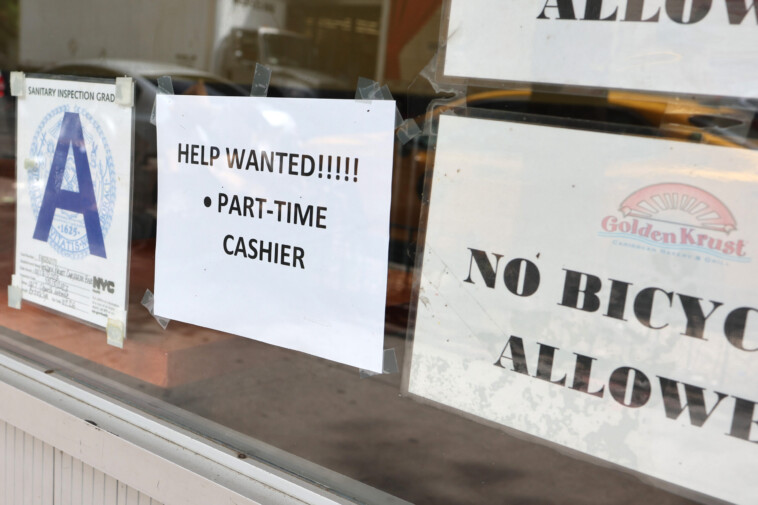Just weeks before Election Day, the number of Americans applying for unemployment benefits has increased to the highest level in more than a year.
In a news release on Thursday, the U.S. Department of Labor announced that, for the week ending October 5, there were 258,000 jobless claims, up 33,000 from the previous week’s 225,000 claims. This is the highest number of jobless claims since the week of August 5, 2023.
The Associated Press spoke to analysts who blamed the increase on Hurricane Helene, but a Daily Wire review of the initial claims filed for the past week shows that is not the whole story.
North Carolina, which suffered the most under Hurricane Helene, saw a 290% increase in jobless claims – 8,534 more than the previous week. While North Carolina saw the largest percentage jump, Michigan – which was unaffected by Helene – also saw a large percentage increase of 140%, and had the highest single jump in jobless claims at 9,490. California, which was also not affected by the hurricane, had the third highest increase in claims at 4,484.
Florida, South Carolina, and Tennessee, which were also damaged by Helene, saw a 69%, 83%, and 72% increase in jobless claims, respectively. Kentucky also had a large percentage increase (146%) due to damage from the hurricane, though its effects have not been extensively covered by the media. Alabama and Georgia, which were also hit by Hurricane Helene, each saw fewer than 1,000 new jobless claims.
The increase from those states affected by the hurricane only adds up to 18,210 new claims – or a little more than half of the rise in applications for unemployment benefits filed last week. In fact, 43 states saw an increase in jobless claims in the past week, while only a handful of states were affected by Hurricane Helene.
Am I Racist? Is In Theaters NOW — Get Your Tickets Here!
Another factor the AP noted was the continuous effect of high interest rates on the labor market. Between 2022 and 2023, the Federal Reserve hiked interest rates repeatedly until the federal funds rate hit a two-decade high of 5.3%. This pushed mortgage rates up to 8%, making the housing market crisis worse for buyers and having little to no effect on inflation. The Fed has recently started lowering interest rates, reducing it by half a percentage point last month.
According to the AP, the Fed’s goal is to bring down inflation without causing a recession, even though many Americans are struggling to pay bills now.
The federal government on Thursday also reported that inflation has reached its lowest point since February 2021, just after President Joe Biden took office, the Associated Press reported. What that actually means is that inflation is still rising, but rose slower than it has in three years. Inflation rose by 2.4% last month from a year earlier, which was the smallest annual increase since February 2021. So, while the media may report that inflation is going down, prices are still rising.



